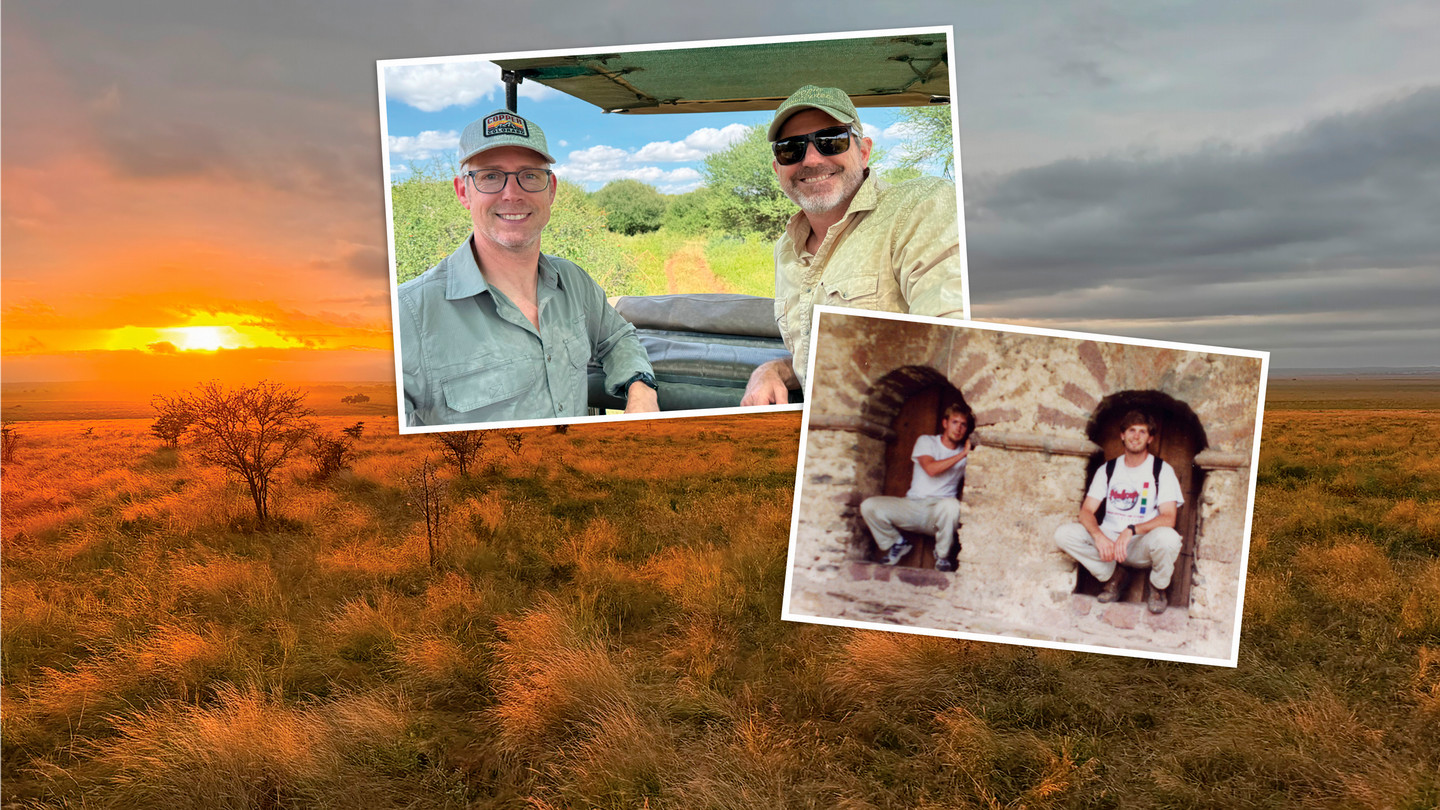HERE ARE DAVE SALLEY, his wife, Kelsey, and their three kids, thousands of miles from their Virginia home, sitting around a campfire in the heart of a 20,000-acre wildlife preserve. Above them are the infinite stars of this early June Tanzanian night. With them is Mark Thornton, pointing out the constellations, identifying the sounds of the bush around them. Tanzania is Mark’s home, where he and his wife have raised their two daughters and where he has built his business, Mark Thornton Safaris, which regularly wins accolades for the quality and conservation focus of its intimate, personalized expeditions.
But this particular Mark Thornton safari is unique not just for the Salleys, but for Mark, too, because he and Dave go way back. Thirty years before, they graduated together in the University of Richmond Class of 1995. In fact, their 2025 reunion took place across the ocean just as the Salleys arrived in Tanzania, a coincidence of timing they realized only after the trip was scheduled and the details arranged.
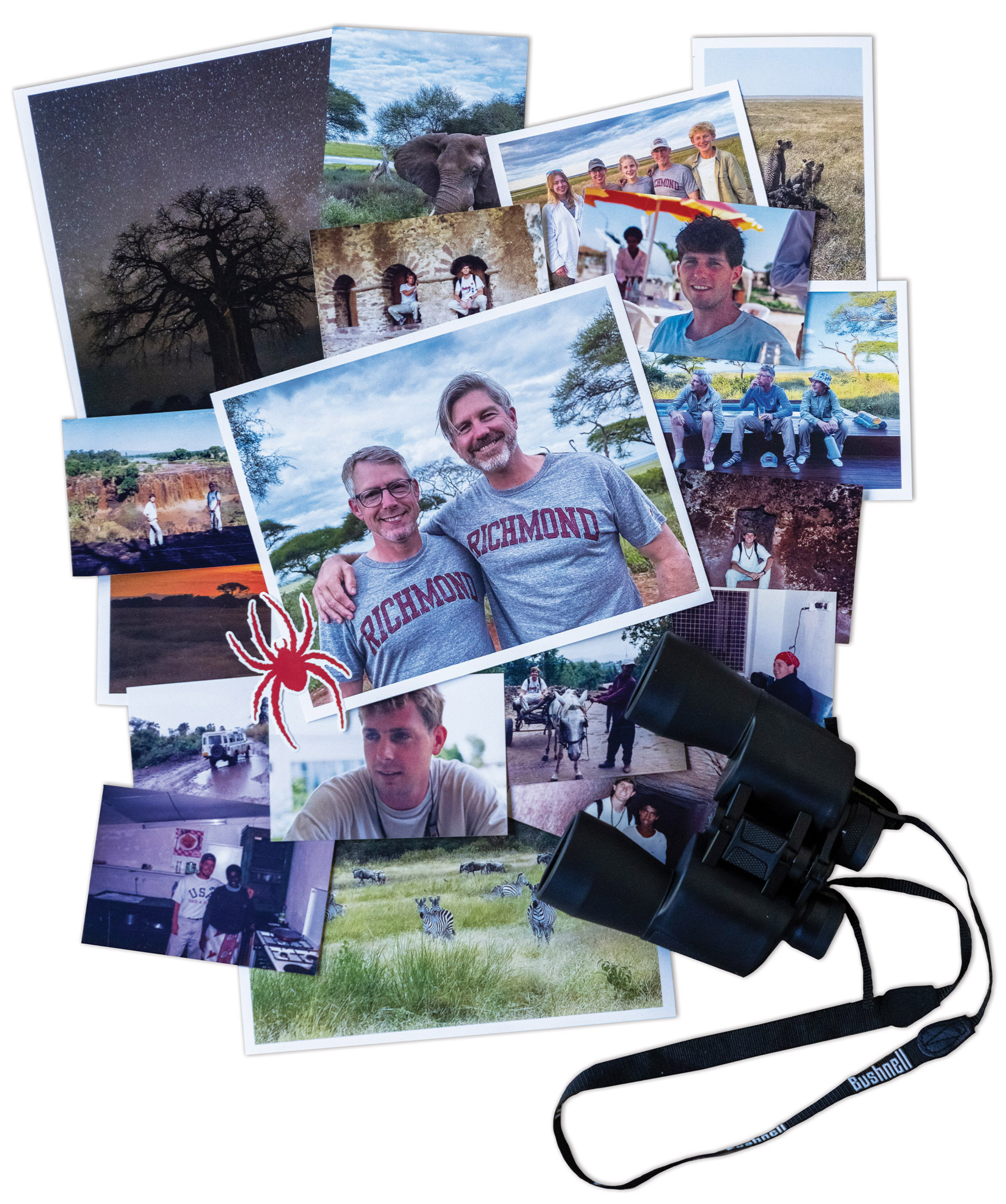
If the random chance of college choice hadn’t thrown Mark and Dave together, if there hadn’t been the football games and dinners in D-Hall and late-night dorm conversations, or that crazy spring break road trip, or the summer the two spent bussing tables and framing houses in Colorado, and then that apartment they shared on Richmond’s Monument Avenue where Mark made a bedroom out of the pantry, with a mattress on the floor and a shower curtain for a door — then maybe they wouldn’t have become lifelong friends.
And of course if Mark hadn’t decided to pursue an out-of-the-ordinary semester abroad his senior year, then they wouldn’t be sitting together now around this fire on this night decades later. There would be no Mark Thornton Safaris, for that matter. He wouldn’t speak fluent Swahili, understand the moods of elephants, be raising two daughters here with his wife, Maral.
But also, Dave would never have gone to medical school. He would never have met Kelsey. Their three kids, the life they’ve built together in Virginia — all of that would have been another story never written.
Fast Friends
They met a few weeks into the hectic social whirl of their first year — Dave the public-school kid from Slidell, Louisiana (population: just shy of 25,000) and Mark the prep-school grad who’d grown up in New York and Connecticut (population: many). Pledging the same fraternity, the two found their acquaintanceship becoming a friendship becoming the interweaving threads of countless events and anecdotes over the next four years. It was a friendship deepened by profound loss when Dave’s mother died suddenly in the summer after their sophomore year. Mark wrote Dave a letter that offered comfort but also assurance, even an imperative: You’ll be OK. Don’t let this change you.
“That letter stuck with me,” Dave says. “We became very tight after that.”
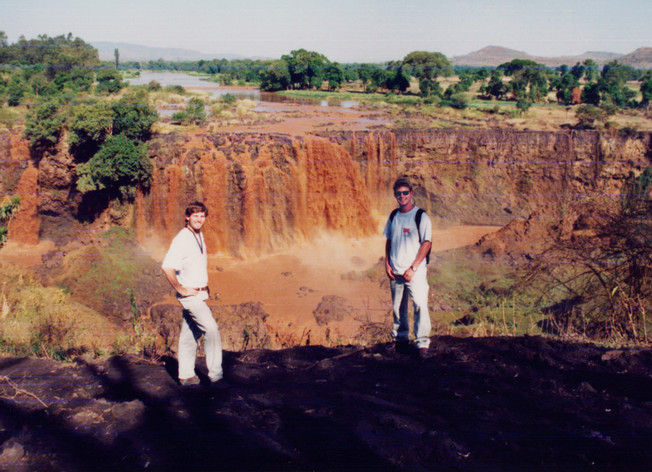
early adventures took them across East Africa, including to the Blue Nile Falls in Ethiopia.
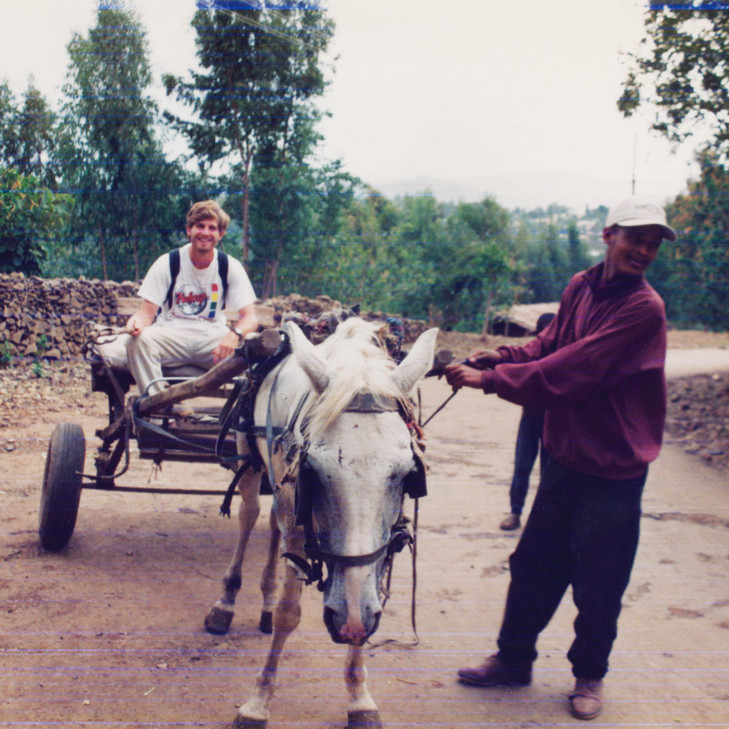
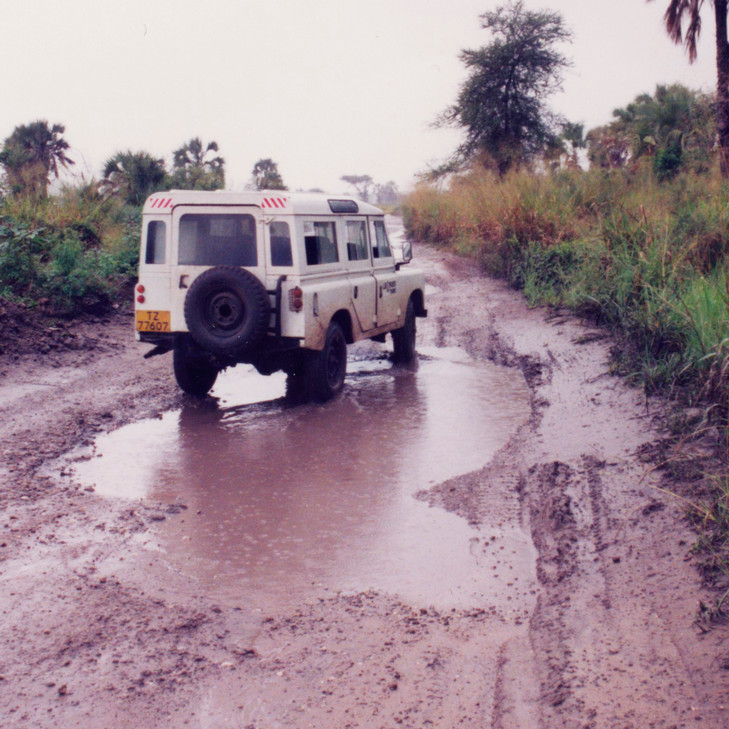
In the fall of their senior year, seeking a truly different semester-abroad experience, Mark opted for a program that took him to Tanzania, living with a local family to learn Swahili while focusing on wildlife ecology and conservation, and concluding with a monthlong independent study. He examined land-use patterns and population shifts in wildlife migration areas between two national parks there.
The experience changed Mark. Not just traveling, but actually living immersed in an entirely different culture “was a way to launch me out of normal college life and get me thinking about other places,” he says. “After I went back, I did a class in the economics of developing countries, and I loved the class, so it enabled me to learn what interests me and where I wanted to pursue things. A lightbulb went on and focused me.”
Why not?
At first that interest led Mark, after graduation, to spend a few months at an international consulting company in Washington, D.C. It was fine; it was comfortable, a solid beginning to some future career in foreign policy, maybe, or international development. But it didn’t feel like the path that lightbulb was beckoning him toward. “I wanted to do interesting work somewhere else, and it didn’t matter what it was,” he says.
So he reached out to someone he’d met in Tanzania, and it turned out that person had taken over a safari company and needed an operations manager, someone “looking after the nuts and bolts of running tented groups out to the bush.” Did an econ major mean he was prepared to organize safaris? No matter — the job was Mark’s as long as he could get there in two weeks and agree to stay for two years.
Why not?
At the time, he says, two years seemed like such a huge commitment that “I did not think beyond that at all,” he says. “I quit my job, sold my car, and flew out there.”
Dave, meanwhile, was feeling underwhelmed by where he’d fetched up in life after graduation, living in Delaware and selling water filtration systems. Or, more to the point, says Dave, “failing at selling water filtration systems.” One day a letter arrived from Mark inviting Dave to visit. As Dave recalls Mark’s words, “Hey, you have no career and nothing going on, and here was this rare opportunity to come see him in Africa.”
Why not?
“There were not really plans,” says Dave. “Through mail we agreed I would show up in the capital of Ethiopia on a certain day, so I mailed him the flight info and flew to Addis Ababa. I got off the airplane and came down the staircase, and there was a sea of people. I remember thinking, ‘I hope Mark is somewhere in that sea.’”
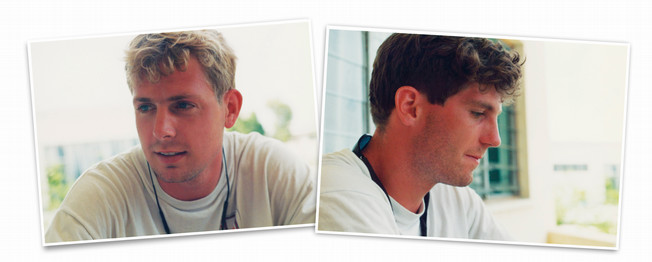

“Hey, you have no career and nothing going on, and here was this rare opportunity to come see him in Africa.”

He was, and off the two went, exploring Eritrea and Ethiopia for the next month before ending up in Tanzania, a grand adventure of nearly impassable roads, remarkable history, stunning natural vistas, and an ancient 1970s Land Rover that broke down in the heart of Tanzania’s Tarangire National Park, not a place you want to find yourself unexpectedly having to walk out of unprepared among the venomous snakes, apex predators, and roving elephants. Fortunately, they fixed the truck.
And then? “I was supposed to go home,” says Dave. Mark needed to tend to his job. Dave had a flight scheduled.
So here are Mark and Dave, recent Richmond graduates, in a bar in Tanzania getting ready to say goodbye. But there’s someone else here, too, an effusive, gregarious fellow American, which maybe isn’t too much of a coincidence, except his name is also Mark, and he’s a recent graduate of another Virginia university more than 7,500 miles from this bar but just one hour up the road from Richmond in Charlottesville. He’s killing some time in East Africa before starting medical school.
This other Mark convinced Dave he didn’t have to go home just yet. “You’re already halfway across the world, I need someone to hang out with, and there is so much more to do and see. Why don’t you go with me to Zanzibar and Rwanda?” future-doctor Mark said to Dave.
Why not?
So off Dave went again. “We had endless hours on buses and trails and in tents to talk about things,” Dave says. And somewhere in those endless hours, “I became intrigued with his med school plan and convinced myself that I should follow that path.”
And thus — not overnight but in due course — Dave found himself in first-year anatomy lab, where he also found himself intrigued by more than the intricacies of connective tissue. Students could walk around to study each other’s dissections. “My anatomy lab partner said, ‘Dave Salley sure spends a lot of time at our table,’” says Kelsey.
Any one event in a life can be traced to a chain of preceding moments, decisions, opportunities seized or foregone. But for Kelsey and Dave, a straight line runs from Mark Thornton’s pursuit of a unique study-abroad program through a chance encounter in a Tanzanian bar to a grisly meet-cute in anatomy lab, where a woman who’d dreamed of being a doctor since she was barely a teenager met a man who never would have shared that lab if he’d been any good at selling water filtration systems. Soon after, he invited her to the med school prom.
“Mark and Mark,” says Kelsey. “We owe them our lives together because we wouldn’t have met if Dave hadn’t gone to Africa.”
Walking Tanzania
The two years that had seemed like such a long commitment to Mark Thornton turned into three, and then three turned into Mark starting his own safari company in Tanzania, something different from the standard tourist fare. He’d met some “old-timer safari experts,” he says, “and they showed me some really cool, interesting, remote places and the adventure and thrill of walking safaris.” This experience is what Mark wanted to offer — taking people into the bush to walk and explore and camp.
For a few years, he worked on building that idea, teaming up with a friend based in San Francisco. During that time, though, Mark met his future wife, Maral, and with her, he once again took a leap, stepping away from the tour business to move to South Africa, where he pursued a master’s degree in environmental management, then working in conservation and environmental consulting there for a year. He saw how often in conservation “there is a year or two project, then they leave and things go back to the way they were,” says Mark. He realized, “I could be effective if I stick to one part of one place — northern Tanzania — and really embed my efforts there and work long-term with projects.”
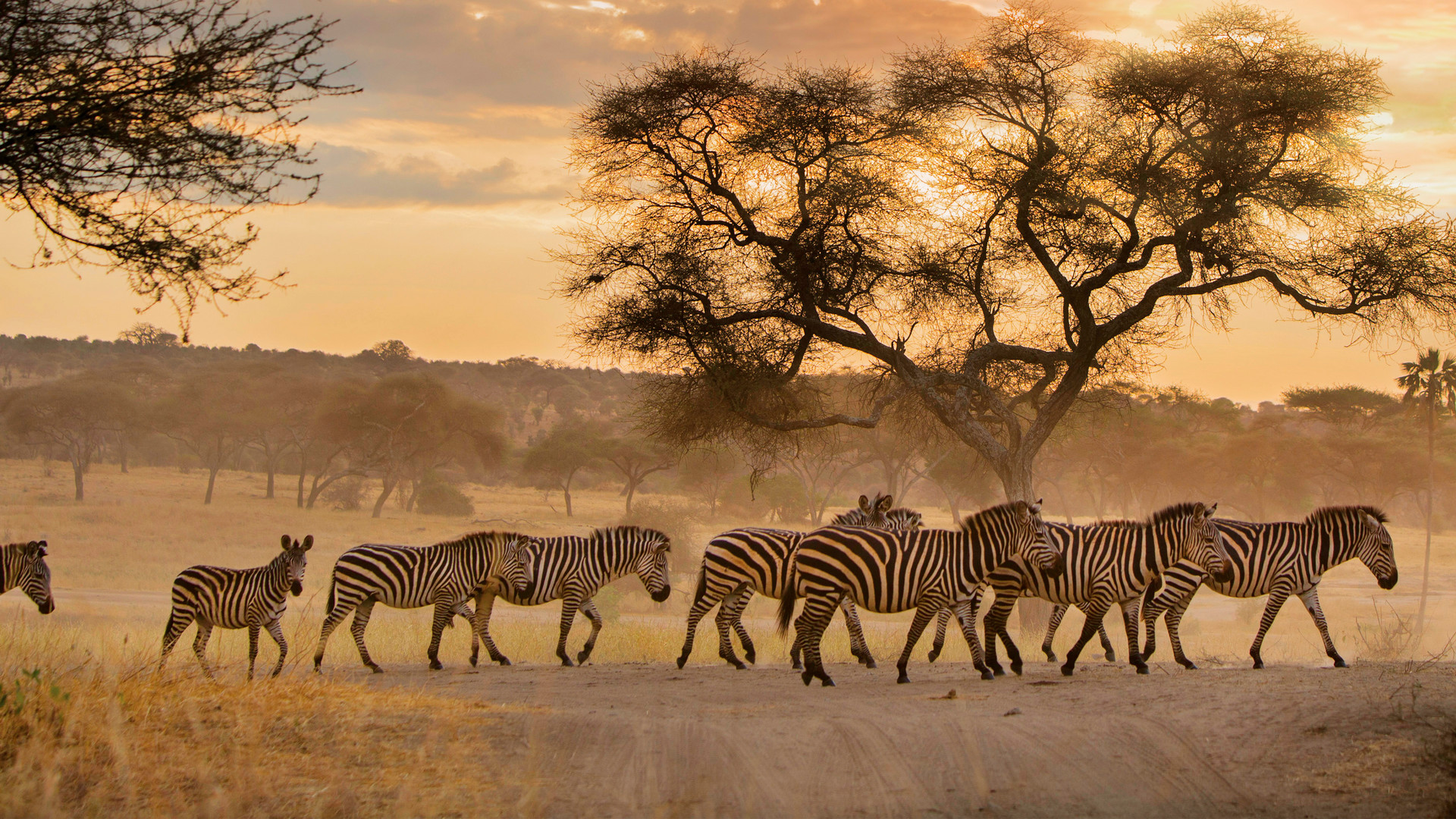

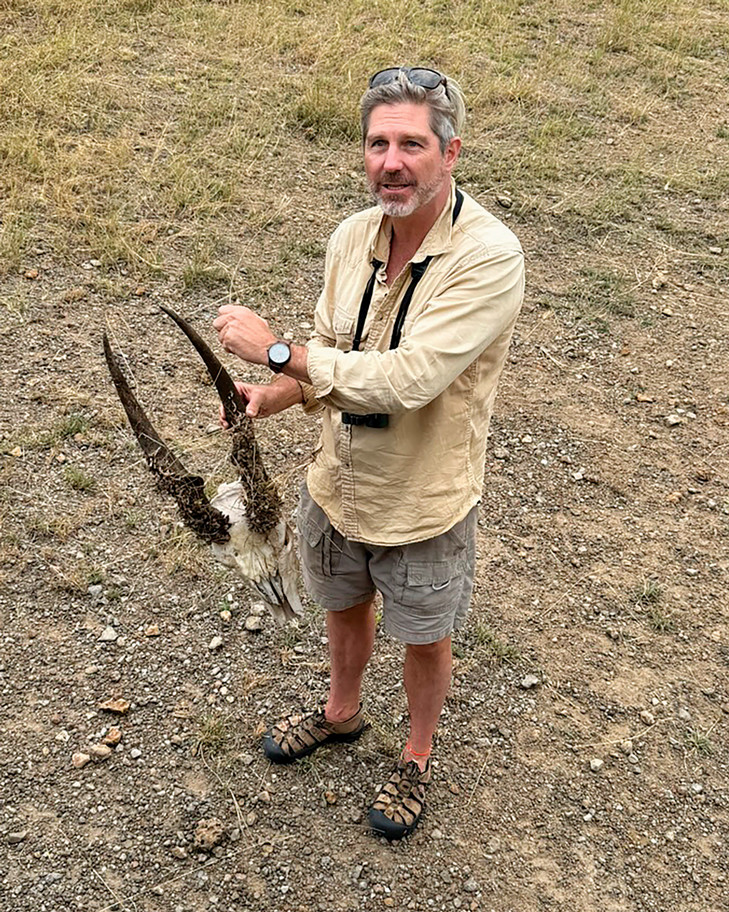

“We have been walking for 20 years, and you can go in and see no sign we were there.”

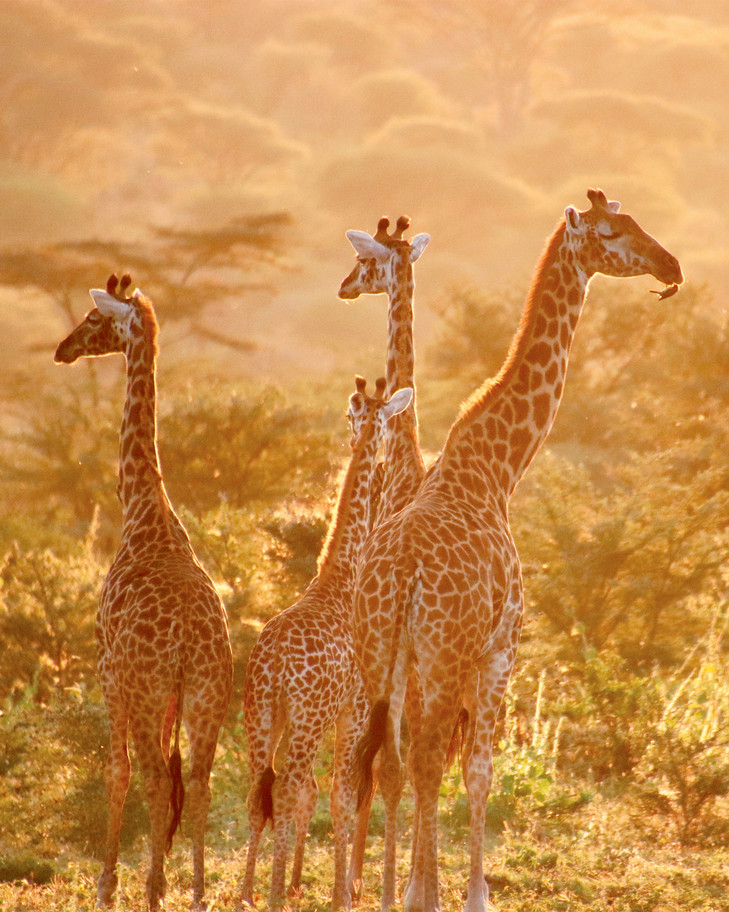
He left his consulting work and “rebooted my safaris,” Mark says, “focused on highly personalized trips, still involving conservation as a backbone value, but also guiding all the walking safaris, to really build a client base and be super personal about it.”
Mark Thornton Safaris built a reputation for exceptional, individualized adventures (“I still talk with each and every person and plan their trip,” says Mark) and for the company’s focus on conservation, earning a loyal client base grown by word-of-mouth praise, as well as steady accumulation of accolades from travel publications.
While the safari industry as a whole, says Mark, has evolved into an experience as commercial, crowded, and commodified as a cruise ship, Mark and his small team of guides offer the opportunity “to go to pristine, remote areas with wildlife and beauty that no one else goes to,” he says. His walking safaris travel light on the land with a small crew, establishing no permanent camps and varying routes to ensure that any impact is brief and transitory. “We have been walking for 20 years, and you can go in and see no sign we were there,” says Mark.
Mark also is active in local conservation efforts, serving on the board of a local NGO and on an advisory panel for Serengeti National Park, developing best practices for walking safaris there.
In short, more than 30 years after his senior year at Richmond, he’s still essentially working his semester-abroad project: conservation and land use in Tanzania.
Back to Africa
Over the years, the Salleys and Thorntons kept in touch as Kelsey and Dave built successful medical careers and welcomed two daughters and a son to their family. During this same time, Mark and Maral’s two daughters were born, and the family relocated permanently to Arusha, Tanzania.
Dave and Kelsey had long wanted to take their family to experience one of Mark’s safaris, and finally, with their kids in middle and high school, they decided it was time to go. Which is how, following nearly 24 hours of travel from Richmond to Boston to Amsterdam to Kilimanjaro and two more bone-jarring hours in a car, the Salleys arrived in Arusha in May. They spent a couple of days there, and then they set out on safari with Mark.
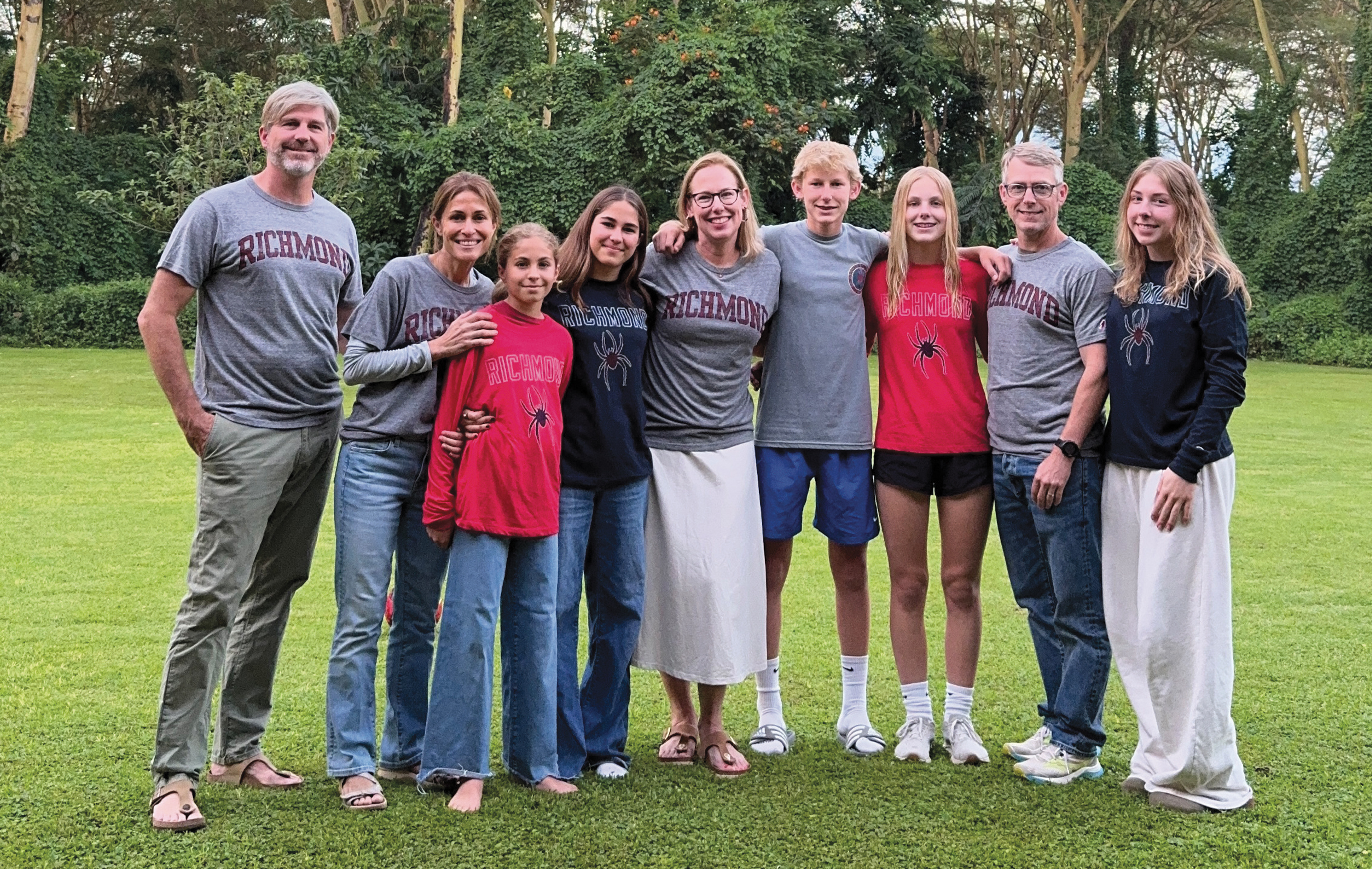
Mark Thornton, far left, and Dave Salley, second from right, with their families in Tanzania in May 2025. Before the trip, the Salleys stopped by the Spider Shop to pick up Richmond swag for everyone.
Their first stop was a 20,000-acre private reserve, a wild, unspoiled place of wonder and beauty, where the goal isn’t to go chasing after lions and zebras and photo ops. Rather, it’s a chance to experience something “unique and different and real,” says Mark, to slow down and notice and listen.
Within minutes of arriving in the preserve, the Salleys encountered their first elephants.
“Wow,” said Dave. “That didn’t take very long.”
Over the next several days, the Salleys traveled in the preserve with Mark and his small team by lightweight vehicle and on foot. From there, they would go next to Tarangire National Park, where Dave and Mark’s ancient Land Rover had broken down so many years ago. Here, they were able to travel only by (modern and functioning) vehicle but remained surrounded by wildness. Giraffes wandered through their camp. They watched a lion hunt at night. Throughout their days together, Mark and his guides, who bring years of experience and exhaustive training to their safaris, also showed them animal tracks and other small details that might easily be missed. “We stalked on some animals, spotted giraffes, elephants, gazelles, zebras, and countless others,” Mark says.
“We were in awe of all the animals,” says Kelsey — the birds too. Their guide James Nasary’s encyclopedic knowledge of birds — he knows some 800 by sight or call — captured the Salleys’ imaginations. “We got really into the birds,” Kelsey says.
At night they camped, talking and laughing around a fire, falling asleep to the distant roar of lions, waking to a fresh cup of coffee, and watching the sun rise.
Time Out of Time
“By the time you go home,” Mark had promised, “you will have seen more than you could ever imagine.” And he was right. The Salleys spent a few more days in Tanzania traveling without Mark and then a few more relaxing at a house on the beach by the Indian Ocean. But it was the time with Mark that stays with them. All the animals, the birds, the beauty of the bush, the sunsets and the dawns, the enormous sky overhead at night, the small, unforgettable moments.
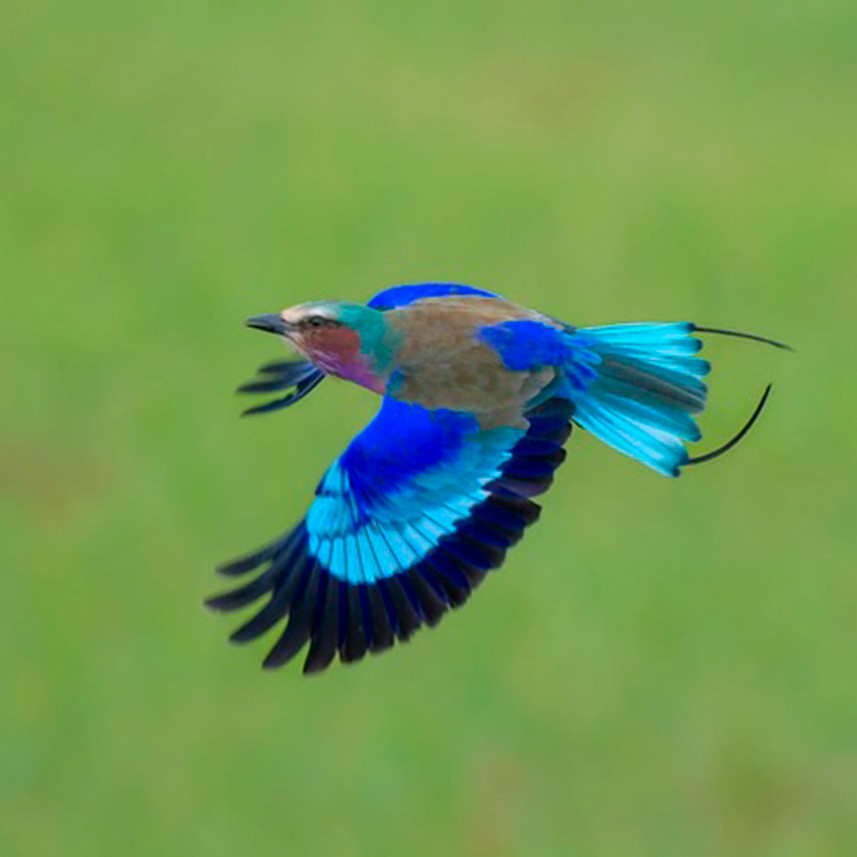
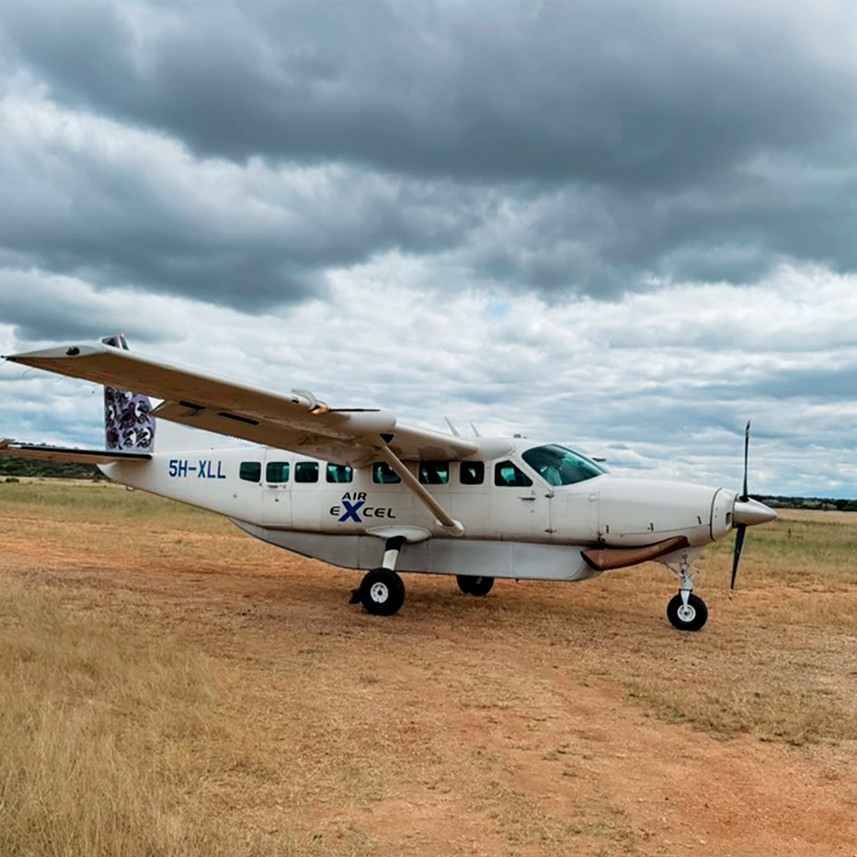
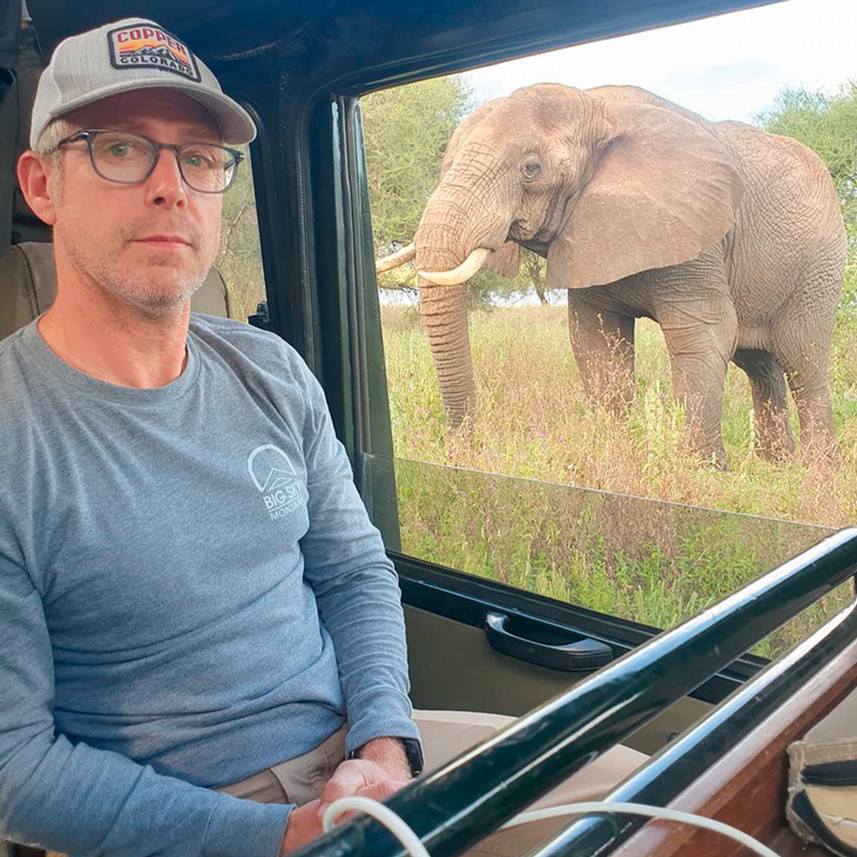
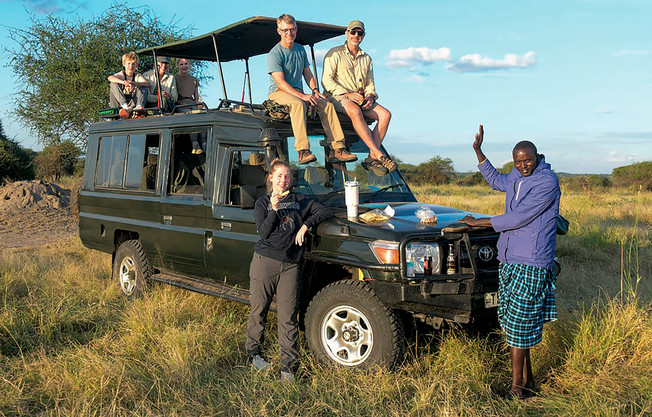
“It was the most amazing trip we have ever taken,” says Kelsey.
“One of my favorite moments of the whole trip was walking around that private reserve with Mark and the other guides,” says Dave. “Just walking out there in the bush, in the cradle of humanity, and thinking about the fact that some other human being tens of thousands of years ago was walking in that same place.”
For Kelsey, “It was a great bonding time for our family,” she says. “To have all those sit-down meals together and time walking and sitting around a campfire was one of the most meaningful things.”
And for Mark as well, no matter how many times he has ventured into the bush, “all those simple things” are the moments that “never get old,” he says. To share that time in a place he loves deeply with friends he has known so long, since before he was ever “Mark Thornton Safaris,” was the highlight of the Salleys’ visit for him.
So here are Dave and Mark around the fire telling stories from a time when they were just two kids who met on a college campus, with all the possibilities of what their lives would become still stretching ahead of them. Here they are now, more than 30 years later, bound by a friendship unbroken by time and distance, one encompassing the families and futures they couldn’t have imagined then.
You can never know where a beginning will end, how a decision will unfold, what a “why not?” will lead to.
“Sometimes,” says Kelsey, “it’s good just to take a leap.”
